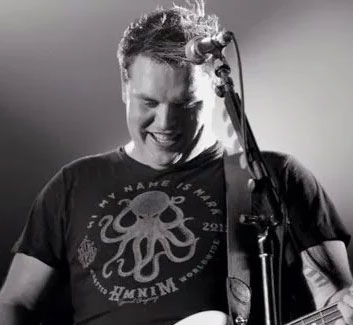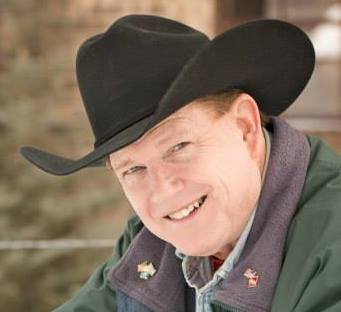POKER COVERAGE THAT STANDS OUT

Get the proven tools you
need to win at online poker
Grab your 3 FREE eBooks now!




Your sit n go boot camp has turned me into a winning sit n go player up to ~$6 buy in. The strategy is sound and I have even started implementing it into early stages of MTTs and some cash games.
You have a ton of awesome resources, I am really enjoying the ebooks.

Your thoughts on position play and starting hands helped me the most. I really love your poker site reviews.
I just wanted to compliment you on your style of writing when you cover the games. It's easy to read, right to the point.
Thank you for your efforts.
Love it. Thanks for the content. I think the best was the article about mistakes most players make. Took first in a live tourney last week for $1400!

I'm impressed by not only the content but that so far it seems like you are following your mission statement and that in itself is a major accomplishment.
Your content is very thorough you appear sincere and devoted to your mission and love the name BTF.

I've been playing poker for 5 years. You've helped my game tremendously.
Postflop content, C-betting, frequencies, how to play certain hands, most important point to focus on, observing opponent's tendencies more than one's own hole cards, proper hand analysis - and a lot more.
All in all, BTF's content is second to none.
I came across Beat The Fish which has all I need for now to make the transition from fish to player. The information is well structured and easy to follow.
I've read your ebooks and they are a great foundation for learning to play a more structured game. Not only do they show how to become a good player, but they also highlight vulnerabilities of my current standard.
I like the beginners related content as that's where I am, reviewing everything from the ground up. I like how the site is concise and not littered with distracting adverts.
I've enjoyed it so far, especially strategy lessons especially on sizing bets against different types of opponents.. Tend to be a study hound anyway. I'm just a beginner but have made 1 final tourney table and tripled my bankroll since I started visiting your site.

I'm still new and a beginner to Texas Hold'em Poker live or online. What I have seen and read in Beat The Fish has been excellent!
I am learning fast between your website and others. Great poker website.
Thank you, Mike :)

I've played poker for 20+ years. Beat The Fish has helped my game, most of all with odds and statistics.
You have so much valuable content.

Beat The Fish helped my game tremendously and the hand strength charts helped me the most.
Keep creating good articles ;) Thanks

I like the way the information is presented in plain language that a beginner can understand. I have greatly improved my game by using your charts etc.

I think it’s some of the best. You seem very genuine, and it’s obvious you’ve put a substantial amount of effort and energy into your content. Keep doing what you’re doing, you’re good for the game (and not in the usual context lol). Thanks.
Poker News
Poker News
Features
Features
Strategy
Strategy
You won't find any money bias here
The amount of misinformation out there by self-proclaimed "unbiased" and "independent" poker websites is out of control. The shameless PR-crafted hyperbole spewed out by poker and casino review sites existed when I launched in 2005.
It still exists today, although in greater numbers as more and more online gambling affiliates have caught on to the money involved in this industry. I’m tired of it. While I can’t control what my online poker competitors do, I can do better myself.
- I do not rank my poker reviews, my casino reviews, or give more exposure to poker sites based on money. I never have and I never will.
- If a poker site or casino undergoes significant changes – and they do all the time in this industry – I update my content and my payout scores to reflect that.
- I'm fed up with the misinformation in the online gaming industry. My poker reviews, casino reviews, and features are going to be honest if nothing else.
I'm tired of "free sample" reviews in online poker.
You know those reviews for vitamins, tools, and garden products on Amazon that come from people who have been “offered the product at a discount in exchange for an honest review"? The next time I see a negative review for a free sample will be the first. I feel like online poker and casino reviews on most affiliate sites follow the free sample pattern.
These tactics dilute reviews from actual buyers (players) while making it almost impossible for prospective buyers to get an honest opinion. That’s what happens with online poker reviews, only to a much greater degree. I want Beat The Fish to stand out as that honest buyer in the sea of money-driven online poker hype.
For better or worse, I'm going to tell players what's really happening out there in the wild. This is more important than ever in markets such as the USA, which largely relies entirely on player trust.
I have an entire hubs for American poker players and USA casino players, where I try to definitively answer the common player question of "is online poker legal".
My longevity in poker provides perspective
I didn’t invent the Internet. I wasn’t a founding father of online poker. My last name isn’t even Gore. However, it feels like I’ve been involved in both ends of online poker - as a player and a website owner - forever. Heck, a decade-plus might as well be forever on the Internet.
I’m a lifelong poker player who followed the game online in 2004 and started Beat The Fish in 2005. You know, when people still cared about MySpace, webcams, the launch of YouTube, and isn't a blog a Dr. Seuss character?
I’ve been on both sides of the online poker industry for a long time.
That history has allowed me to live through the most important and legal landscape-altering events in online poker history – from both sides of the curtain.
What I feel this has given me is the ability to:
- Avoid the sky-is-falling mentality. For example, the eulogy has been written for US-based online poker many times, yet sites like Bovada Poker have thrived more than ever.
- Provide some insight on the realistic outlook of a poker room in the balance. For example, I'm bullish on a "legal" poker site like Global Poker because of their gaming license and clever business model.
As sports and the stock market teach us, past performance in the online poker business doesn't guarantee future results. It can, however, provide some wisdom to make better decisions in the future.
I do everything myself or with a small team
I’m not certain that this is a big positive anymore since I could probably provide more poker and casino content if I outsourced, but it’s simply how I’ve always done Beat The Fish. I’m old-school. I like to control every piece of poker content on this site. For better or worse, I’m only accountable to myself and I take pride in every piece I put out.
One addition I've made was bringing a small team on-board who crafts everything in the poker news section and contributes to many other new poker and casino features. Other than that, I occasionally have an artist make some custom illustrations for me or a coder work on the site, but I take care of the rest.
A small team goes against the trend of the top-ranking poker "authorities".
The majority of high-ranking websites dedicated to online poker these days are mega-sites run by a collection of foreign content writers and SEO experts.
They're full of outsourced material made by those with a questionable passion for poker, or exist as massive forums dominated by elitist number-crunchers. For better or worse, I don’t really fit in with any of that and I hope it's part of what makes Beat The Fish different.
My gaming site reviews are honest, period
Out of all the sections of Beat The Fish, the online poker reviews are probably what I pride myself the most on. Along with my namesake tutorial literally on how to "beat the fish", reviewing poker sites is actually what inspired me the most to make this website at all more than a decade ago.
There's simply too much misinformation and lack of detail out there about poker. I always thought I could offer fellow online poker reviews players something more accurate simply by passing along the truth.
My Ignition Poker review, for example, can seem over-the-top at more than 13,000 words, but I had so many thoughts after playing there that it didn't feel complete until I shared them all.
Online poker reviews aren't a unique idea, but I think doing them my way is.
Online poker room reviews are a mainstay of any website like mine. Reviews of products of all kinds have become such a staple of the Internet and guide many of our decisions.
The problem is that when you throw in the kind of money that’s involved in online poker, “independent” reviews turn as green-tinted with dollar signs as the virtual felt they're quasi-reviewing. I hope Beat The Fish can be one of the few unfiltered online poker websites in that chipstack of Internet misinformation.
Some of my more popular reviews are on BetOnline and ACR Poker, both of which rely so much on trust in a Wild West online poker market. Most online poker reviews are always overwhelmingly positive, filled with little detailed information, and fill in the blanks with enough hyperbole to make Paul Bunyan blush.
The worst offenders feed outright lies to players, promising speedy payouts from poker rooms that has been scamming players for months, if not years. That’s exactly the kind of trash I've always avoided here, even in my bonus-focused pages for ACR and Global Poker.
This is my required review recipe:
- Very long and filled with a lot of specific information, probably more than most players asked for.
- I'm honest in my assessments. No hyperbole here except the rare occasion when it's warranted.
- I dig deeper than the flashy bonus numbers the poker rooms throw at you. In fact, I'm the first one to tell you that bonuses can be deceiving mirages.
- I give players a real idea of what they can expect in return for their hard-earned deposit.
Strategy to improve, not impress
When I set out to tackle poker strategy my goal is to make it accessible for beginners but still provide enough substance for intermediate and advanced players to maybe pick up a tidbit to try out at their next playing session.
- I don't like to intimidate anyone. Instead, I like to leave players with bottom-line techniques to add to their arsenal.
- I don't usually delve into numbers-heavy poker strategy just for the stake of impressing you. I focus on pot odds and realistic calculations you can do easily with every hand.
I like to give players "ninja" poker strategy
To borrow a term from the marketing industry (which makes me cringe a little inside) I like to give “ninja” advice in my poker strategy section to players. Simple, sometimes-hidden but very specific actionable steps to incorporate into your overall poker strategy.
I've also conducted poker hand strength tests and published a free poker ebook course to give players some unique formats to pick up strategy. Overly simplistic and vague advice isn’t a ninja tip. “Play the right starting hands and adjust to your position.” Gee, thanks.
“Almost always call a minimum bet from late position with any pocket pair and 2+ limping callers ahead of you.” That’s an example of something specific and "ninja" you can actually use.
I write all of the poker strategy content with the goal of providing useful realistic tactics you can incorporate into your game right away.
Welcome to Beat The Fish
I’m glad you found Beat The Fish and I hope you find at least one page that entertains you, helps you make up your mind about a prospective poker room, or win a little bit more at the tables.
I don't run the biggest poker site in the world and I'm not a name professional, but I know this great game of poker.
I know online poker as an industry and I know what it takes to survive and thrive as a player. I’m not trying to reinvent the online poker wheel - just the delivery service that brings it to you.
When I launched Beat The Fish in 2005, I had one focus: create a specific guide for helping frustrated online poker players literally "beat the fish".
Since then, I've reviewed more than 50 poker rooms, written almost 400 pages of content, covered the WSOP every year, and played hundreds of thousands of hands of online poker.
I feel incredibly fortunate to still be covering the best game in the world more than a decade later. What a great ride.
